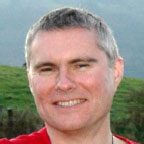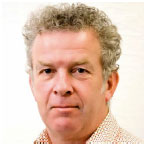Geo-engineering: An Interactive Workshop
2011: The Royal Society of New Zealand hosted a workshop on 11 March exploring how geo-engineering proposals could be assessed.
Efforts to rein in greenhouse gas emissions have been relatively insignificant to date, and atmospheric levels are now rising more sharply. In the absence of mitigation, geo-engineering could offer an alternative option by preventing the potentially catastrophic climate-change tipping points that face us. Yet, despite a plethora of suggested schemes, very few have been tested, and there are no national or international policies controlling these activities.
The workshop explored recent research into geo-engineering options. The range of proposals is large and expanding, including increasing soil carbon and sequestering biochar, avoiding deforestation, increased mineral weathering, and ocean fertilisation. The morning talks explored these options, highlighting the uncertainty ever-present in influencing the interconnected and complex air, ground, and water processes that make up the earth system.
Participants explored the use of the 1000Minds decision software. This allows the ranking of proposals against flexible criteria and was used to explore how different preferences would lead to different proposed rankings for geo-engineering options. A thorough analysis that could lead to recommendations would be a detailed undertaking. The workshop did not attempt that but showed the value of the approach as a tool for providing and ranking advice.
Throughout the workshop, an underlying theme was that no geo-engineering proposals are readily acceptable and that mitigation – reducing emissions of greenhouse gases – is still the top priority for reducing climate change. There is an urgent need for global regulations that allow further research in this field, while preventing commercial developments until side-effects are understood and proposals are justified and effective.
Workshop Presentations
- Atmospheric geo-engineering – A quick fix with a silver lining – Dr Mike Harvey, NIWA
- Terrestrial geo-engineering schemes – Professor Jim Jones, Massey
- Oceanic geo-engineering schemes – Dr Cliff Law, NIWA
- Geo-engineering and its interaction with the Earth System – Professor Lionel Carter, Victoria University of Wellington
- Introduction to the decision-making software – Franz Ombler, 1000Minds
- Ranking criteria for geo-engineering schemes – Professor Philip Boyd, NIWA/Otago
- Discussion of development of policy on geo-engineering – Karen Scott, University of Canterbury
Previous commentary from the Royal Society of New Zealand on the Royal Society of London’s 2009 geo-engineering report – Geo-engineering no replacement for reducing greenhouse gas emissions

Franz Ombler, one of the founders of 1000Minds

Professor Philip Boyd, NIWA Centre of Chemical and Physical Oceanography, University of Otago, Dunedin
